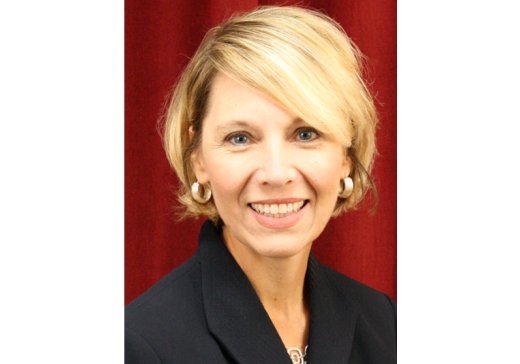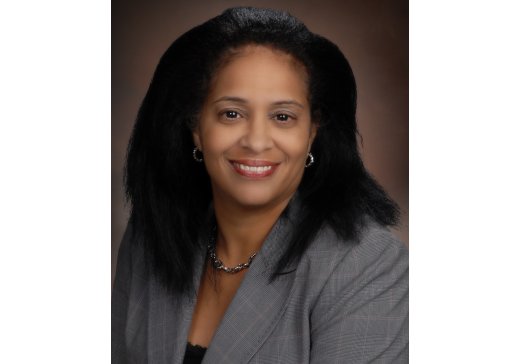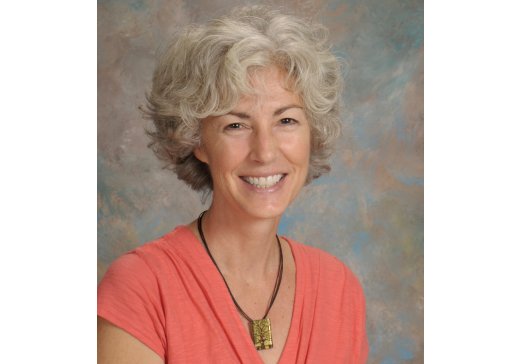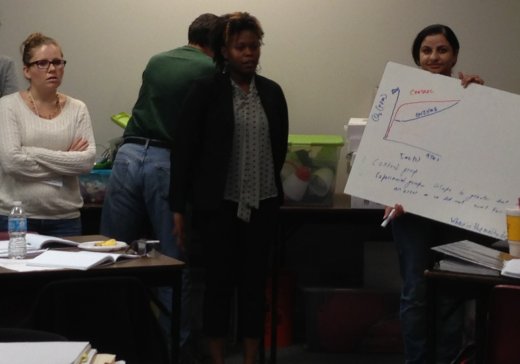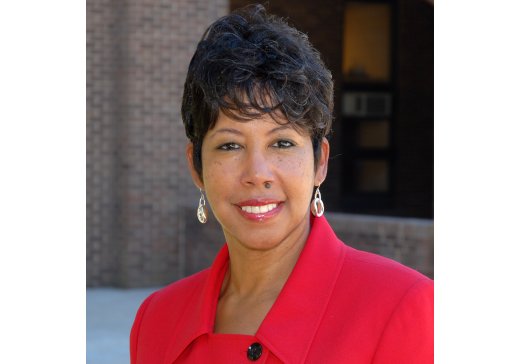-
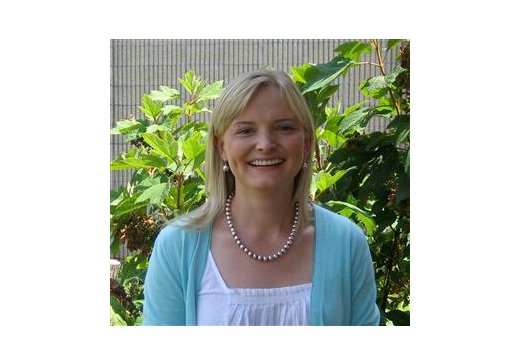
Stefanie Buckner
April 2013 |
Math teacher Stefanie Buckner thought teaching in a large traditional high school was fine, but something about it just didn't fit for her.
"I felt like I was putting myself in a box, that I wasn't the teacher I wrote about in my education philosophy classes in college," Buckner says.
When she interviewed for a position at Buncombe County Early College six years ago, everything clicked.
"I was in teacher heaven, like I was becoming the teacher I imagined I would be in college," Buckner says. "The constant support from the staff and coaches at NC New Schools and the environment of the early college is truly invigorating. I wanted to make kids think, investigate, explore math. I wanted them to learn because they experienced it and not because I told them so."
At the early college, Buckner cultivates an interactive math classroom, where students teach each other, work in groups and take responsibility for their learning. She sees her role as having a discussion with the class. She believes that understanding how to work in groups is an even more important skill than simply learning math rules.
"When I write on the board, my students tell me what to write," Buckner says. "It's more of a get-up-and-go environment instead of student sitting in rows and watching me do math. My job is to highlight the student who gets it and make them the star of the day instead of me. Then that responsibility rotates around the classroom. We are learning math together as a group of students, not me lecturing them."
Buckner employs an approach known as Core-Plus Mathematics, a four-year integrated curriculum that replaces the traditional Algebra-Geometry-Algebra 2-Precalculus sequence. Now a Core-Plus trainer, she credits Core-Plus and the NC New Schools staff and coaches for helping her master new approaches to teaching. She said she was surprised to discover that key instructional strategies that NC New Schools promotes like "Writing to Learn" and "Literacy Groups" could work in a math class.
"At first I thought literacy groups were totally an English thing," Buckner says. "But after working with our instructional coach, I realized it was about making group work more efficient in my classroom. Now I use literacy groups in my class every day and they succeed because every student has a specific role that has to happen in order for the whole group to work."
Literacy groups make up one of the six classroom strategies outlined in NC New Schools' Common Instructional Framework (CIF). Like other schools partnering with NC New Schools, Buncombe County Early College builds on the CIF, which is focused on helping all students meet high standards and engage them in their own learning. The approach requires that students read, write, think and talk in every class, every day.
"The Common Instructional Framework is what transcends high school," Buckner says. "My students don't need to know how to factor to be successful in a career. The "read, write, think, talk" skills are what really make students career-ready and college-ready at the same time. You can learn a lot of things, but being able to process those things is what takes you beyond the walls of this classroom. The most important skill I teach is problem solving by using the CIF."
Buckner admits that teaching math at Buncombe Early College "hasn't been all roses." She says her end-of-course results the first year were so low, they brought her to tears. But the school has worked together over the years and last year made 100 percent proficiency in every class.
"I hit the bottom my first year and got tremendous support from my administration and the county to fix the problem. A lot of the county now wants to know what we're doing," Buckner says. "You have to believe that students can learn mathematics and they can learn it without you showing and telling them. You have to believe they can get it through exploration and investigation because that's how they remember it."
Stefanie Buckner grew up in Buncombe County, attending public schools there through high school. She earned a bachelor's degree as a NC Teaching Fellow at Appalachian State University and a master's in education from Wake Forest University. After teaching for three years in Wake County, she returned to Buncombe County in 2007. A National Board Certified teacher, she was named Erwin District Teacher of the Year, Buncombe County Schools First Runner-Up Teacher of the Year, and Outstanding HS Mathematics teacher for Buncombe County, all for 2011. -
Ros Guerrie
March 2013 |What do banking and education have in common?When you're Ros Guerrie, senior vice president for leadership and professional development manager at BB&T University, the answer is leadership."BB&T's...
-
Colleen Pegram
February 2013 |If you call Principal Colleen Pegram's office at SandHoke Early College High School and get her voicemail, you'll hear a greeting that ends this way: "I will return your call within 24 hours. In the...
-
Donna Doughty
January 2013 |As a counselor at Caldwell Early College High School, Donna Doughty believes she has the best job around. "With the focus on preparing students for college, careers and life, the vision of our school and of...
-
Latoya Scott
November 2012"Modeling instruction is starting from the ground up and flipped." That's how science teacher Latoya Scott describes the teaching method -- known as "modeling" -- that she uses in her classroom. If that...
-
Angela Ballentine
September 2012 |At Vance Granville Community College, Dr. Angela Ballentine's job title is listed as "Vice President of Instruction." In that role, she is responsible for the staffing, program planning, oversight,...
-
Ashley Hinson
May 2012As a principal, Dr. Ashley Hinson saw many capable students for whom traditional high school just wasn't the right fit. "Some students got their diplomas, but they were destined for an entry-level job in the fast...
-
David Peele
April 2012Growing up in Aurora, in rural Beaufort County, David Peele attended public school with the same 30 kids from first grade through high school. Today, as president of Avoca Inc., Peele is a key leader behind a...




